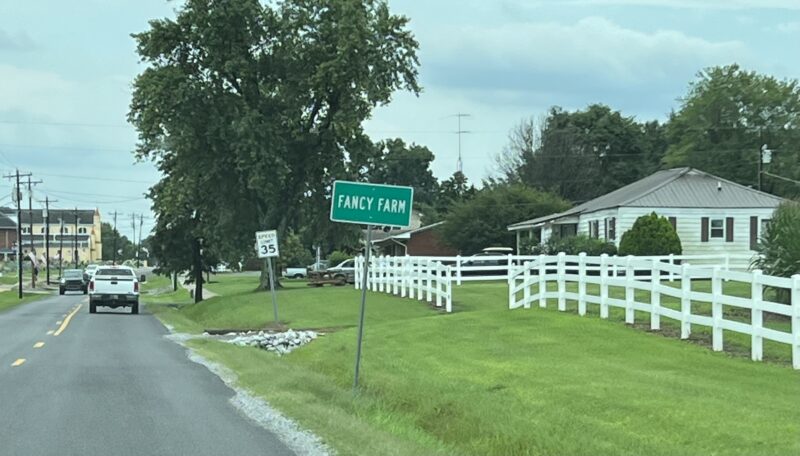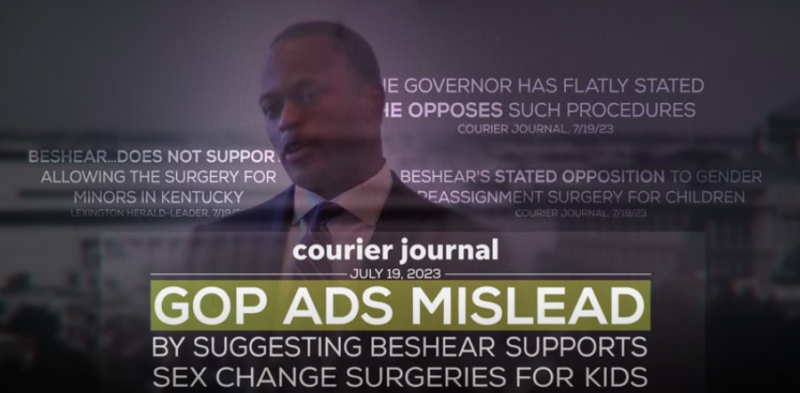When the Kentucky House voted to ban gender-affirming medical treatment for Kentucky minors, even if their parents want them to have such care, it illustrated what’s wrong with our politics, and with the Kentucky General Assembly.
Medical science and wisdom are ignored, and the legislative process is abused, all for political expediency. The loudest and most extreme voices hold sway, and compromise is rare, because a poor, under-educated state that once voted its pocketbook is now voting its traditional culture – perhaps to the long-term detriment of its economy.
Political beliefs aside, the process has clearly gone bad. The House passed House Bill 470 mere hours after a revised version was approved in committee, giving no time for drafting of amendments that would have allowed meaningful deliberation of a complex question.
That’s because the legislative leaders who run the show on the third floor of the Capitol want to avoid votes on amendments, in order to keep members’ votes from being used against them in elections – and to keep their Republican majority caucuses from fracturing, which Sen. Mitch McConnell warned Republicans about when they took control of the state Senate 23 years ago. It’s basic legislative politics, but it’s poor government.
The 75-22 vote that sent HB 470 to the Senate was almost completely along partisan lines, with only three Republicans voting no. Tellingly, one was the chair of the House’s health committee, Rep. Kimberly Poore Moser of Taylor Mill in Northern Kentucky.
Kim Moser is a nurse by profession – and a politician by performance and by heritage. In her fourth two-year term, she’s the daughter of the late Dr. Floyd Poore, who was state transportation secretary and ran for governor and Congress as a Democrat.
The bill was a logical one for her Health Services Committee, but it didn’t go there, apparently because House leaders knew how she felt about it. If they had sent it there, she might have crafted a compromise or at least made the bill less extreme.
After the floor vote, “She suggested that the bill be simplified to say that children under the age of 18 could not have transgender surgery, and to limit hormone therapy to those who have had extensive counseling,” reported Melissa Patrick of Kentucky Health News (which I publish).
Instead, if the bill becomes law, medical practitioners will be wary if not scared of offering advice and counsel to youth who need it, and may leave the state, Moser told her colleagues:
“Eighty percent of what family practitioners and many other physicians do in their practice is address mental health. It’s not only counselors who address mental health of their patients. Patients come in with a wide variety of situations, and their physicians need to be those trusted individuals with whom they can have a confidential conversation. . . . I think this goes too far. I think it’s discriminatory. I think it eliminates parents’ rights.”
But our tribalized politics make compromise difficult, especially with issues that go to voters’ cultural beliefs, which in Kentucky center on religion. A series of culture-war issues in the last 60 years has turned Kentuckians away from the increasingly liberal Democratic Party and made the GOP more conservative: school prayer, civil rights, abortion, gay rights, and now an issue few people even knew about until recently: transgender rights.
It’s a subject that may seem bizarre to many Kentuckians; it isn’t so strange if you’ve met a transgender or nonbinary person, or read up on the subject. But these days most reading takes place on social media, and is too often about confirming what you already believe rather than opening yourself to contrary views. You want confirmation more than information.
So, that’s what your politicians give you, as ignorance leads to fear and then to hate. We need more politicians like Utah Gov. Spencer Cox, a Republican who said when he vetoed a bill banning transgender girls from sports, “Rarely has so much fear and anger been directed at so few.”
Utah state Sen. Daniel Thatcher, another Republican who opposes such bills, told The New York Times that voters are “being told this is a social contagion, these kids are popping up because we’ve made it popular. Bull—. It’s becoming more common because it is becoming safer. It is not safe. But it’s safer. As it becomes safer for people to come out, more and more people are going to realize ‘This is someone I care about. This is a family member. This is a friend. This is a friend’s kid.’”
Thatcher said his party’s politics remind him of 3-year-olds playing soccer: “They don’t know where the lines are, they don’t know where the goals are. . . . They just want to kick the ball as hard as they can. That’s politics today.”
Al Cross (Twitter @ruralj) is a professor in the University of Kentucky School of Journalism and Media and director of its Institute for Rural Journalism and Community Issues. His opinions are his own, not UK’s. He was the longest-serving political writer for the Louisville Courier Journal (1989-2004) and national president of the Society of Professional Journalists in 2001-02. He joined the Kentucky Journalism Hall of Fame in 2010.
NKyTribune is the anchor home for Al Cross’ column.




 Login
Login  Must include at least 8 charaters
Must include at least 8 charaters



